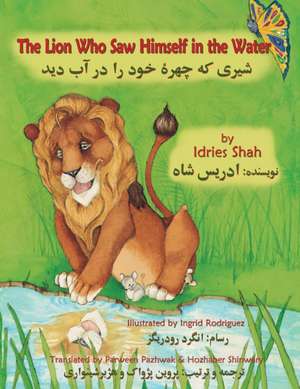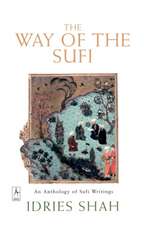The Lion Who Saw Himself in the Water
Autor Idries Shahen Limba Engleză Paperback – 28 mar 2017
| Toate formatele și edițiile | Preț | Express |
|---|---|---|
| Paperback (5) | 63.26 lei 3-5 săpt. | +65.55 lei 6-12 zile |
| Hoopoe Books – 28 mar 2017 | 63.26 lei 3-5 săpt. | +65.55 lei 6-12 zile |
| Hoopoe Books – 30 ian 2017 | 63.26 lei 3-5 săpt. | |
| Hoopoe Books – sep 2015 | 64.59 lei 3-5 săpt. | |
| Hoopoe Books – 9 noi 2016 | 64.59 lei 3-5 săpt. | |
| Hoopoe Books – 21 iul 2018 | 64.59 lei 3-5 săpt. |
Preț: 63.26 lei
Nou
Puncte Express: 95
Preț estimativ în valută:
12.11€ • 12.61$ • 10.23£
12.11€ • 12.61$ • 10.23£
Carte disponibilă
Livrare economică 14-28 februarie
Livrare express 30 ianuarie-05 februarie pentru 75.54 lei
Preluare comenzi: 021 569.72.76
Specificații
ISBN-13: 9781946270122
ISBN-10: 1946270121
Pagini: 40
Dimensiuni: 216 x 280 x 4 mm
Greutate: 0.18 kg
Editura: Hoopoe Books
ISBN-10: 1946270121
Pagini: 40
Dimensiuni: 216 x 280 x 4 mm
Greutate: 0.18 kg
Editura: Hoopoe Books
Notă biografică
Idries Shah spent much of his life collecting and publishing Sufi classical narratives and teaching stories from oral and written sources in the Middle East and Central Asia. The tales he retold especially for children are published by Hoopoe Books in beautifully illustrated editions and have been widely commended - by Western educators and psychologists, the U.S. Library of Congress, National Public Radio and other media - for their unique ability to foster social-emotional development, thinking skills and perception in children and adults alike. Told for centuries, these stories express universal themes from the cultures that produced them, showing how much we have in common and can learn from each other. As noted by reviewers, such stories are more than just entertaining; familiarity with them provokes flexibility of thought, since each one contains levels of meaning that unfold in accordance with an individual's experience and understanding.

